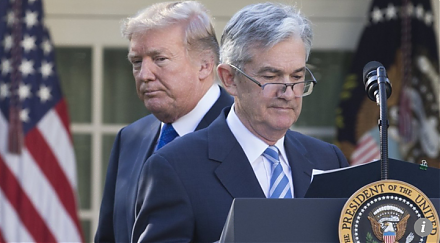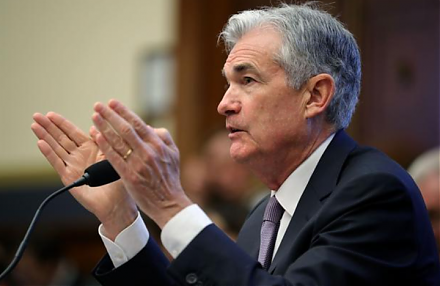

2019-06-05 10:34:00 Wed ET
federal reserve monetary policy treasury dollar employment inflation interest rate exchange rate macrofinance recession systemic risk economic growth central bank fomc greenback forward guidance euro capital global financial cycle credit cycle yield curve
Fed Chair Jay Powell suggests that the recent surge in U.S. business debt poses moderate risks to the economy. Many corporate treasuries now carry about 40% debt as part of equity market valuation. St Louis Federal Reserve Bank recent data indicate that the corporate-debt-to-EBITDA ratio has risen to the upper range of 2.3x to 3.1x.
Powell warns that the current level of business debt can cause financial stress to borrowers if the economy weakens. However, Powell adds the cautionary caveat that business debt may not present imminent risks to U.S. financial system stability, household consumption, and business growth. As the Federal Reserve continues to assess the main amplification of business debt deterioration, short-term liquidity risk remains moderate in the core U.S. financial sector. In the meantime, the Trump administration seeks to raise fiscal deficits to support ambitious public programs on infrastructure, education, residential estate, health care, and social security etc. This public debt accumulation may crowd out intertemporal business debt capacity at the margin. If the U.S. aggregate debt capacity remains invariant over time, the government either has to tolerate higher inflation in the form of seigniorage taxes, or needs to reconsider the ripple effects of incremental corporate debt on the real economy.
If any of our AYA Analytica financial health memos (FHM), blog posts, ebooks, newsletters, and notifications etc, or any other form of online content curation, involves potential copyright concerns, please feel free to contact us at service@ayafintech.network so that we can remove relevant content in response to any such request within a reasonable time frame.
2018-10-07 13:39:00 Sunday ET

The U.S. greenback soars in value as the Federal Reserve continues its interest rate hike. With impressive service-sector data and non-farm payroll wage gro
2022-11-15 10:30:00 Tuesday ET

Stock market misvaluation and corporate investment payout The behavioral catering theory suggests that stock market misvaluation can have a first-order
2018-02-27 09:35:00 Tuesday ET

Fed's new chairman Jerome Powell testifies before Congress for the first time. He vows to prevent price instability for U.S. consumers, firms, and finan
2016-10-19 00:00:00 Wednesday ET

India's equivalent to Warren Buffett in America, Rakesh Jhunjhunwala, offers several key lessons for stock market investors: When the press o
2018-09-29 12:39:00 Saturday ET

The Securities and Exchange Commission (S.E.C.) sues Elon Musk for his August 2018 tweet that he has secured external finance to convert Tesla into a privat
2017-06-15 07:32:00 Thursday ET

President Donald Trump has discussed with the CEOs of large multinational corporations such as Apple, Microsoft, Google, and Amazon. This discussion include